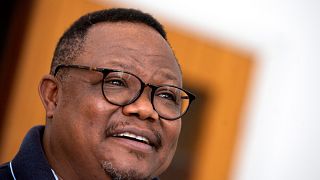Sustainable development
Against a backdrop of food and energy crises, uncertain economic prospects and growing climate change impacts, the United Nations says an industrial transformation is needed to close the growing development gap between countries and achieve climate and sustainable development goals.
In the 2023 Report on Financing Sustainable Development: Financing Sustainable Transformation, released Wednesday, the UN says urgent and massive investments are needed to accelerate transformations, including in electricity supply, industry, agriculture, transport and buildings.
"Without the means to invest in sustainable development and transform their energy and food systems, developing countries are falling further behind," UN Secretary-General António Guterres said in the report's foreword. "We urgently need to rebuild global cooperation and find solutions to our current crises through multilateral action."
Changes underway
According to the report, some of the necessary changes are already underway. The energy crisis caused by the war in Ukraine has spurred global energy transition investments, which soared to a record $1.1 trillion in 2022. Energy transition investments surpassed investments in fossil fuel systems for the first time in 2022, but they are almost all in China and developed countries.
The report finds that most developing countries lack the resources to invest, unlike their developed counterparts. Climate change, Russia's invasion of Ukraine, the COVID-19 pandemic, and debt repayments up to twice as high as 2019 have combined to put massive fiscal pressure on most developing countries. This limits their ability to invest in sustainable transformation.
In developed countries in 2020 and 2021, for example, post-pandemic stimulus spending was $12,200 per capita. This was 30 times higher than in developing countries ($410) and 610 times higher than in least developed countries ($20).
"Without putting in place a reformed international financial system while increasing investments in the Sustainable Development Goals (SDGs), we will not meet our shared commitment to the 2030 Agenda for Sustainable Development," said UN Deputy Secretary-General Amina Mohammed. "The good news is that we know what to do and how to do it. Whether it's launching critical transformations in energy, food and education or ushering in a new green industrial and digital age, we all need to pick up the pace and leave no one behind."
New sustainable industrial policies
The report notes that industrialization has always been a vehicle for progress, leading to economic growth, job creation, technological advancement and poverty reduction. The report calls for a new generation of sustainable industrial policies, underpinned by integrated national planning, to scale up investment and lay the groundwork for necessary transformation. Many opportunities for inclusive growth exist in agribusiness, green energy, and industry.
The rapid adoption of technology points to opportunities for an equally rapid transition to sustainable industrialization and growth. Between 2021 and 2022, 338 million more people used the Internet regularly, an increase of about 38,600 more people per hour. Moreover, in regions with high-quality connected services, 44% of all firms are exporters, compared to only 19% of firms where Internet services are weaker.
However, productive capacity remains uneven. In Africa's least developed countries, manufacturing value added, instead of doubling in line with SDG target 9.2, has fallen from around 10% of GDP in 2000 to 9% in 2021. Targeted policies will be needed to build national productive capacities to achieve low-carbon transitions, create decent jobs and stimulate economic growth, while ensuring gender equality.











Go to video
84% of world's coral reefs affected by worst coral bleaching event in history
01:40
‘The Herds’ puppets highlight climate change in Lagos
Go to video
South African orphanage rehabilitates injured predator birds
01:37
Indigenous and climate activists rally in Brasília ahead of COP30
Go to video
Heavy rains flood Congo's capital, killing at least 22 people
01:54
Uganda: the infiltration of plastics into agricultural fields and food raise concern